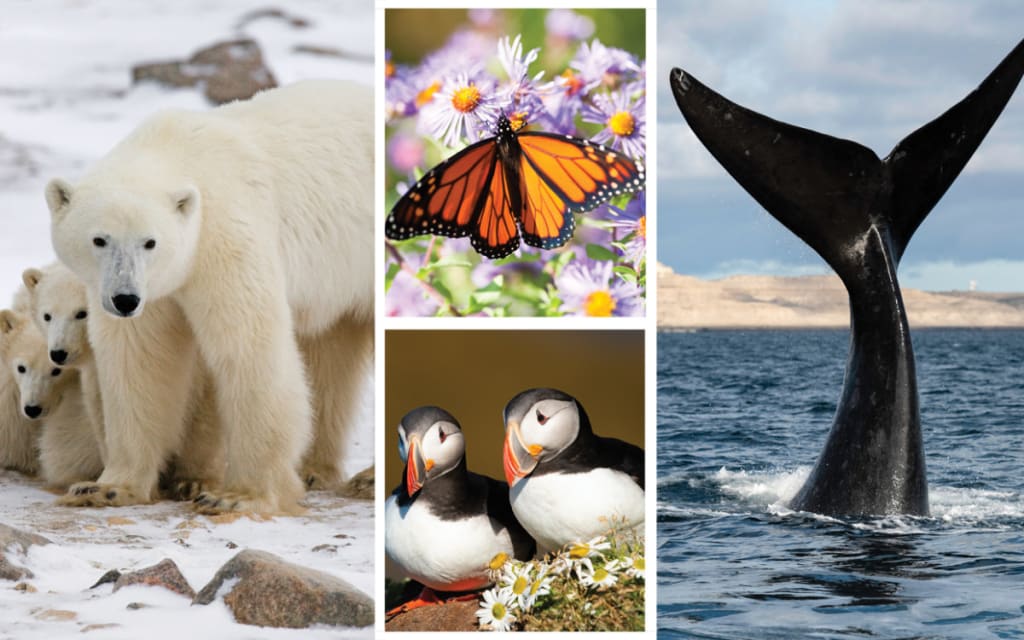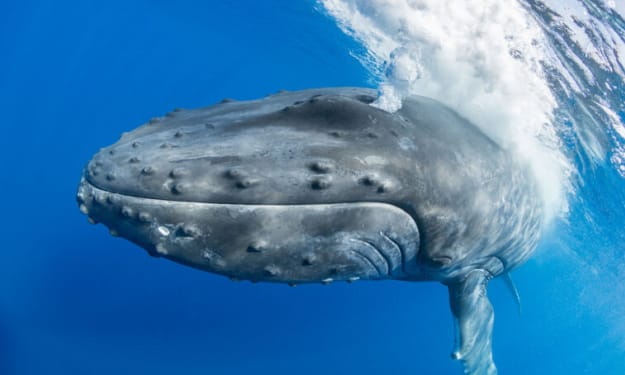Reveals On The Shocking State Of Wildlife.
The World's Transient Types of Creatures are in Decline, and the Worldwide Elimination Hazard Is Expanding

The very first Condition of the World's Transient Species report was sent off today by the Show on the Protection of Transitory Types of Wild Creatures (CMS), an UN biodiversity settlement, at the launch of a significant UN natural life preservation gathering (CMS COP14). The milestone report uncovers:
While a few transient animal groups recorded under CMS are improving, almost half (44%) are showing populace declines.
More than one-in-five (22 percent) of CMS-recorded species are undermined with eradication.
Essentially every one of the (97%) of CMS-recorded fish are undermined with annihilation.
The annihilation risk is developing for transitory species internationally, including those not recorded under CMS.
Half (51%) of Key Biodiversity Regions distinguished as significant for CMS-recorded transient creatures don't have safeguarded status, and 58 percent of the observed destinations perceived as being significant for CMS-recorded species are encountering unreasonable degrees of human-caused pressure.
The two biggest dangers to the two CMS-recorded and all transitory species are overexploitation and territory misfortune because of human action. Three out of four CMS-recorded species are influenced by environment misfortune, debasement and fracture, and seven out of ten CMS-recorded species are affected by overexploitation (counting deliberate taking as well as accidental catch).
Environmental change, contamination and intrusive species are likewise significantly affecting transitory species.
Around the world, 399 transient species that are compromised or close undermined with annihilation are not right now recorded under CMS.
As of not long ago, no such exhaustive appraisal on transient species has been done. The report gives a worldwide outline of the preservation status and populace patterns of transient creatures, joined with the most recent data on their fundamental dangers and fruitful activities to save them.
Billions of creatures make transitory excursions every year ashore, in the seas and streams, and in the skies, crossing public limits and landmasses, with a traversing the globe to take care of and breed.
Transient species assume a fundamental part in keeping up with the world's environments, and give imperative advantages, by pollinating plants, moving key supplements, going after irritations, and assisting with putting away carbon.
Ready for CMS by preservation researchers at the UN Climate Program World Protection Observing Center (UNEP-WCMC), the CMS Condition of the World's Transient Species report utilizes the world's most vigorous species informational collections and elements master commitments from foundations including BirdLife Global, the Worldwide Association for Protection of Nature (IUCN) and the Zoological Society of London (ZSL).
The primary focal point of the report is the 1,189 creature species that host been perceived by CMS Gatherings as requiring worldwide insurance and are recorded under CMS, however it likewise includes examination connected to more than 3,000 extra non-CMS transient species.
Species recorded under the Show are those in danger of elimination across all or a lot of their reach, or needing facilitated worldwide activity to help their preservation status.
While there have been positive patterns for various CMS species, the report's discoveries highlight the requirement for more noteworthy activity, for every single transient specie. The posting of species under CMS implies that these species require worldwide collaboration to address their preservation. Be that as it may, a large number of the dangers confronting these species are worldwide drivers of natural change - influencing biodiversity misfortune as well as environmental change. Accordingly, tending to the downfall of transient species requires activity across states, the confidential area and different entertainers.
Throughout the course of recent years, 70 CMS-recorded transitory species - including the steppe falcon, Egyptian vulture and the wild camel - have become more imperiled. This differences with only 14 recorded species that presently have a superior protection status - these incorporate blue and humpback whales, the white-followed ocean hawk and the dark confronted spoonbill.
Most worryingly, essentially all CMS-recorded types of fish - including transitory sharks, beams and sturgeons - are confronting a high gamble of termination, with their populaces declining by 90% since the 1970s.
Dissecting the dangers to species, the report shows the colossal degree to which the decrease in transient species is being brought about by human exercises.
The two biggest dangers to the two CMS-recorded and all transitory species were affirmed as overexploitation - which incorporates unreasonable hunting, overfishing and the catch of non-target creatures like in fisheries - and environment misfortune, corruption and discontinuity - from exercises like farming and the extension of transport and energy framework.
One key need is to guide and find satisfactory ways to safeguard the crucial areas that act as reproducing, taking care of and visit locales for transitory species. The report shows that almost 10,000 of the world's Key Biodiversity Regions are significant for CMS-recorded transitory species, yet that the greater part (by region) are not assigned as safeguarded or moderated regions. 58% of observed destinations significant for CMS-recorded species are under danger because of human exercises.
The report likewise examined the number of transitory species that are in danger however not covered by the Show. It tracked down 399 transitory species - for the most part birds and fish, including numerous gooney birds and roosting birds, ground sharks and stingrays - are sorted as compromised or close undermined however are not yet CMS-recorded.
While highlighting what is going on of numerous species, the report likewise shows that populace and broad recuperations are conceivable and features occasions of fruitful approach change and positive activity, from nearby to global. Models incorporate composed nearby activity that has seen unlawful bird netting decreased by 91% in Cyprus, and immensely effective coordinated protection and reclamation work in Kazakhstan, which has brought the Saiga Impala back from the verge of elimination.
The Condition of the World's Transient Species report gives an unmistakable reminder, and gives a bunch of need proposals for activity, which include:
Fortify and extend endeavors to handle unlawful and impractical taking of transient species, as well as accidental catch of non-target species,
Increment activities to distinguish, secure, interface and really oversee significant destinations for transient species,
Critically address those species in most peril of termination, including practically all CMS-recorded fish species,
Increase endeavors to handle environmental change, as well as light, commotion, compound and plastic contamination, and,
Consider growing CMS postings to remember more in danger transitory species for need of public and global consideration.
The UN natural life preservation meeting (CMS COP14) beginning today in Samarkand, Uzbekistan is one of the main worldwide biodiversity social occasions since the reception of the Kunming-Montreal Worldwide Biodiversity System (Biodiversity Plan). It will likewise be the primary COP of any worldwide natural deal to happen in Focal Asia, a locale home to numerous transient species including the Saiga Eland, the Snow Panther, and numerous types of transitory birds. State run administrations, untamed life associations and researchers have met up at the drawn out gathering to consider activities to propel execution of the Show. The Condition of the World's Transitory Species report will furnish the logical establishing alongside strategy suggestions to set the unique situation and give important data to help the consultations of the gathering.





Comments (1)
We can save them if we try! Good work